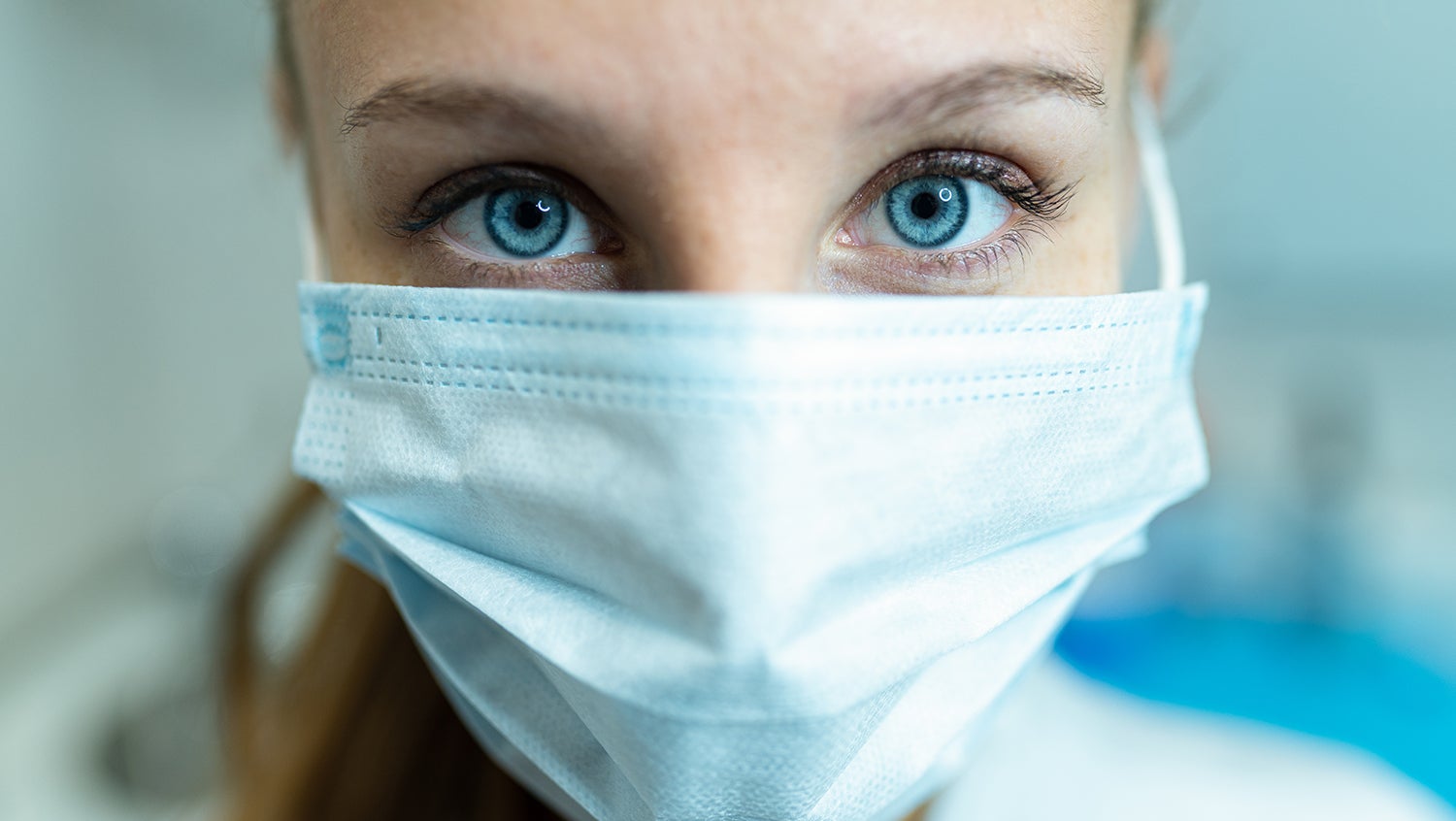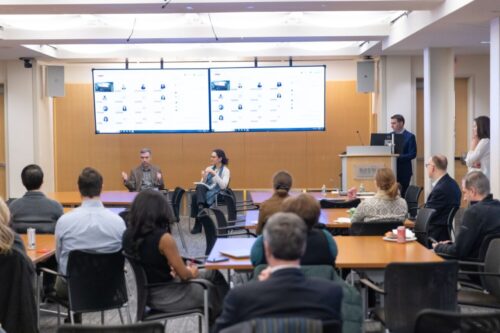
Getty Images
Recent news has given much attention to the pressure that’s on acute care facilities across the country as a result of COVID-19, but the pandemic has touched all aspects and areas of care. The chief nursing officer at Boston Medical Center, Nancy Gaden, DPN, RN, has lead her nursing team through incredible changes over the past few weeks, and is prepared for the continuing evolution of nursing’s role in the weeks to come. In a recent interview with the health system’s president and CEO, Kate Walsh, Gaden offers first-hand insight about the critical role nursing has played in the pandemic response so far, including the team’s rapid adaptation into a host of unusual places like telehealth visits and care management to help keep patients safely off-campus. How nursing support has changed in the coronavirus pandemic Nancy Gaden, DPN, RN, Chief Nursing Officer “We’ve all seen the huge amount of disruption, but I’ll just start with the health plan. People need a lot of things at home, and some of the ways that they would usually get those are not working as they usually do. So the nurses are very involved in care management activities, really making sure that people can stay on the path of getting the durable medical equipment they need or their pharmaceutical support or whatever it is. Nurses are very creative, and nurses are able to pull all sorts of things together. Some of the work that they do to pull together supports may be the best example of nursing, really. We do have nurses now stationed in the lobbies doing temperature checks and evaluating visitors and patients who come in for ambulatory visits. That’s an unusual role for a nurse. In the emergency department, it’s been a very different. We don’t have as many ambulatory people seeking low-level care. We have more people coming in by ambulance as a percentage, many more than usual, and we have patients who are sicker when they get to us, I would say. And so the emergency department is also faced with needing protective equipment, not knowing what the patient needs when they come in, and having to prepare for the worst. So kudos to the ED teams, who are always ready for anything, but especially in this COVID-19 tragedy have been doing things differently. They set up a tent. They’ve been able to move patients who have some respiratory symptoms out to the tent and test them there. We have nurses in the testing centers for employees. We have a lot of nurses working in the employee area answering questions on different risk factors that the employee might have or their family member might have, and in the primary care offices. You would think that because of the decline in visits, there would be a huge decline in nursing work. That has not turned out to be the case, because the nurses do a lot of work on the phone, and families and patients have a lot of questions. Part of what the nurses are trying to do is keep the patient from having to come to the hospital, so sometimes that takes a lot of negotiation with the family and patient on the phone. I would say this has been a really a great time for nursing actually, because it shows all the different ways that the nurses can really contribute to people’s health across the continuum.” For more from Gaden, watch her full conversation with Kate Walsh below.
Recent news has given much attention to the pressure that’s on acute care facilities across the country as a result of COVID-19, but the pandemic has touched all aspects and areas of care. The chief nursing officer at Boston Medical Center, Nancy Gaden, DPN, RN, has lead her nursing team through incredible changes over the past few weeks, and is prepared for the continuing evolution of nursing’s role in the weeks to come.
In a recent interview with the health system’s president and CEO, Kate Walsh, Gaden offers first-hand insight about the critical role nursing has played in the pandemic response so far, including the team’s rapid adaptation into a host of unusual places like telehealth visits and care management to help keep patients safely off-campus.
How nursing support has changed in the coronavirus pandemic

Nancy Gaden, DPN, RN, Chief Nursing Officer
“We’ve all seen the huge amount of disruption, but I’ll just start with the health plan. People need a lot of things at home, and some of the ways that they would usually get those are not working as they usually do. So the nurses are very involved in care management activities, really making sure that people can stay on the path of getting the durable medical equipment they need or their pharmaceutical support or whatever it is. Nurses are very creative, and nurses are able to pull all sorts of things together. Some of the work that they do to pull together supports may be the best example of nursing, really.
We do have nurses now stationed in the lobbies doing temperature checks and evaluating visitors and patients who come in for ambulatory visits. That’s an unusual role for a nurse.
In the emergency department, it’s been a very different. We don’t have as many ambulatory people seeking low-level care. We have more people coming in by ambulance as a percentage, many more than usual, and we have patients who are sicker when they get to us, I would say. And so the emergency department is also faced with needing protective equipment, not knowing what the patient needs when they come in, and having to prepare for the worst. So kudos to the ED teams, who are always ready for anything, but especially in this COVID-19 tragedy have been doing things differently. They set up a tent. They’ve been able to move patients who have some respiratory symptoms out to the tent and test them there.
We have nurses in the testing centers for employees. We have a lot of nurses working in the employee area answering questions on different risk factors that the employee might have or their family member might have, and in the primary care offices. You would think that because of the decline in visits, there would be a huge decline in nursing work. That has not turned out to be the case, because the nurses do a lot of work on the phone, and families and patients have a lot of questions. Part of what the nurses are trying to do is keep the patient from having to come to the hospital, so sometimes that takes a lot of negotiation with the family and patient on the phone.
I would say this has been a really a great time for nursing actually, because it shows all the different ways that the nurses can really contribute to people’s health across the continuum.”
For more from Gaden, watch her full conversation with Kate Walsh below.


